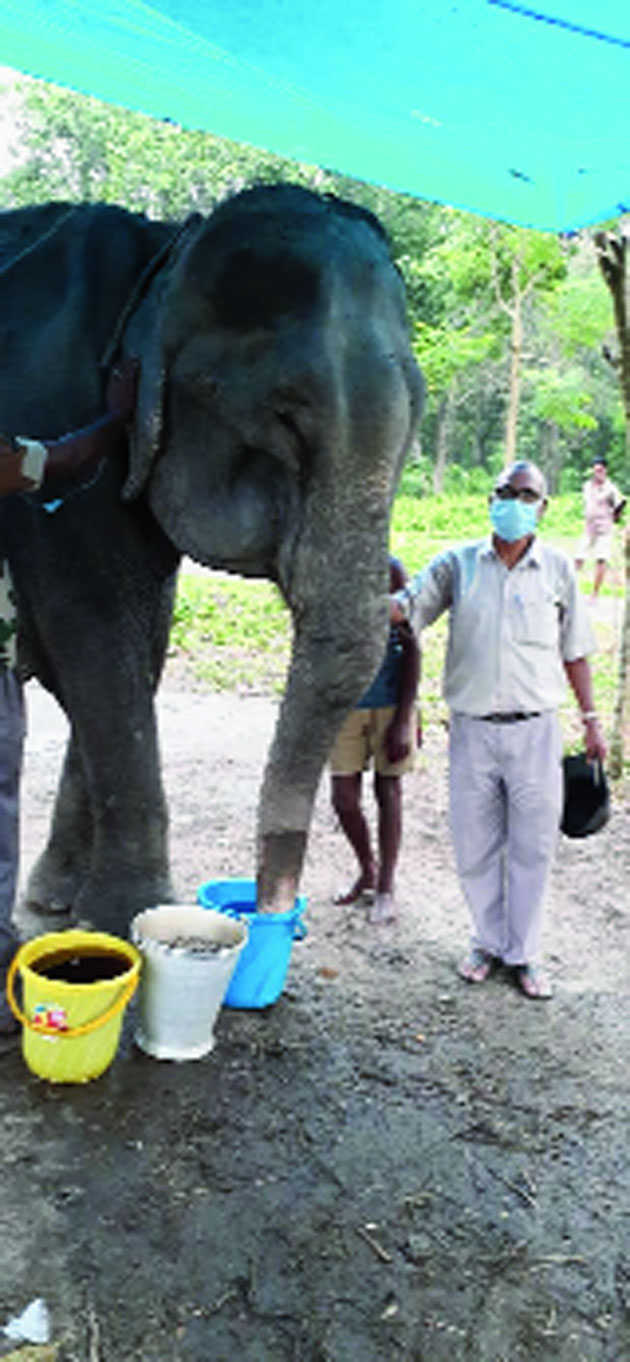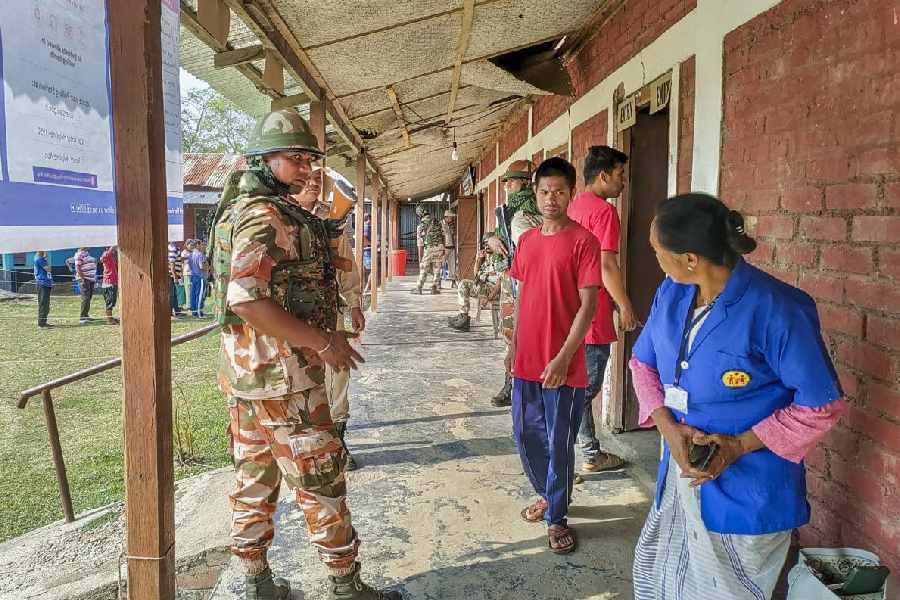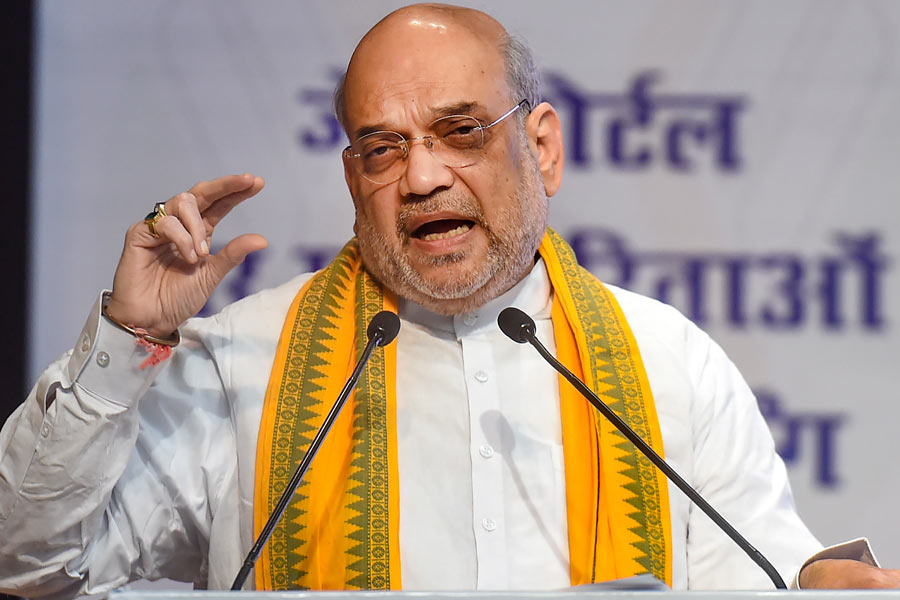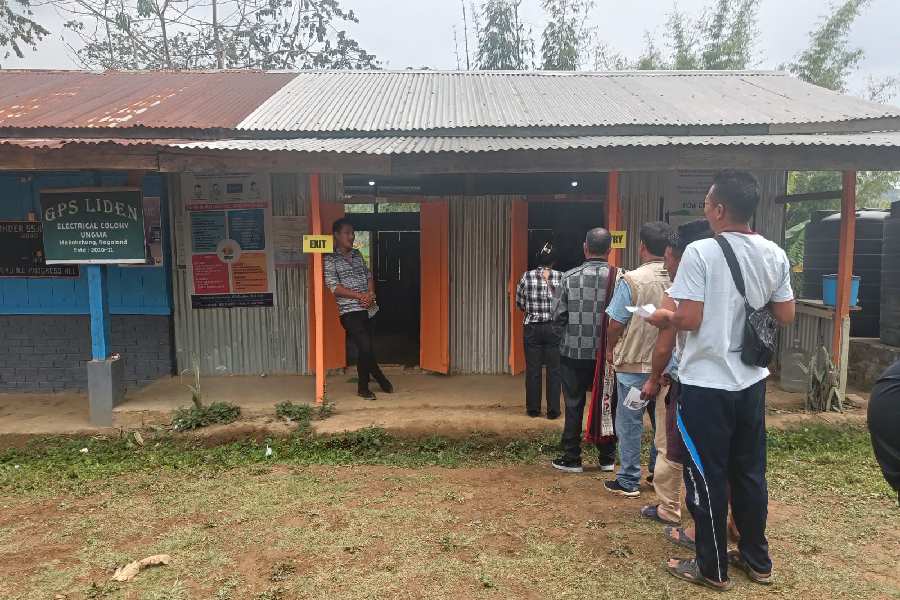Madhubala is dead. She was 91.
A trained elephant at Jaldapara National Park, Madhubala died of age-related ailments on Sunday morning.
The elephant, who had served the forest department for five decades, had more than one identity. The oldest surviving kumki elephant in the state, the last of a batch of “legendary forest guards”, a trusted veteran of many critical wildlife operations; and, in her latest avatar, a watchful and patient mentor to young and adolescent jumbos trained by the forest department.
“She had been suffering from age-related problems for seven-eight years now. Recently, she had lost what remained of her tusk. She was unable to eat for the past few days,” Ujjal Ghosh, the chief conservator of forests (wildlife, north), said.
Ravi Kant Sinha, the chief wildlife warden of Bengal, was posted in north Bengal “around two decades ago” when Madhubala was towards the dusk of her career. “She was part of many tranquilising operations. She was extremely calm in critical situations and always provided a stable platform to launch a dart.”
Some critical situations meant the target — a wild elephant or rhino — charging at the kumki before being darted by a forester atop the kumki, Sinha said.
“If the kumki panics, the launch platform becomes unstable. Not only can the operation be jeopardised, there is also a serious risk to life,” Sinha said.
Ghosh said the rhino population at Jaldapara plummeted to less than 15 in 1985-86 because of poaching and other reasons, prompting the forest department to undertake a vaccination drive for animals to prevent a possible disease outbreak that could wipe out the small number. “It was a Herculean task back then. Madhubala played a stellar role.” In her later years, Madhubala was instrumental in training new captive elephants, Ghosh said.
The forest department issued a formal release as a mark of tribute. “Madhubala was born in 1930. She was purchased by the forest department in 1969-70 and has served the park for 50 years, patrolled over different beat areas during half a century of its service and gave birth to eight calves. The park pays tribute to its eldest guard for 50 long years of outstanding untiring service.”
Madhubala was bought from a private owner at the Sonepur fair, another forest official said. Close to 1,000 elephants used to come to Sonepur in Bihar till the late 80s, but their numbers reduced drastically at the turn of the century.
On paper, trade of elephants had stopped at Sonepur fair from 2002 because of the strict implementation of the wildlife (protection) act and denial of transfer of ownership certificate to elephant owners.
“Madhubala was the last of a batch of legendary patrol elephants. The biggest of them was Jatraprasad, a gentle giant. The most efficient female elephants were Champakali, Phoolmati and Madhubala. The rest had died earlier. Madhubala’s death marks the end of an era,” a retired forester said.










